The International Conference United for Justice. United for Survivors Took Place in Kyiv
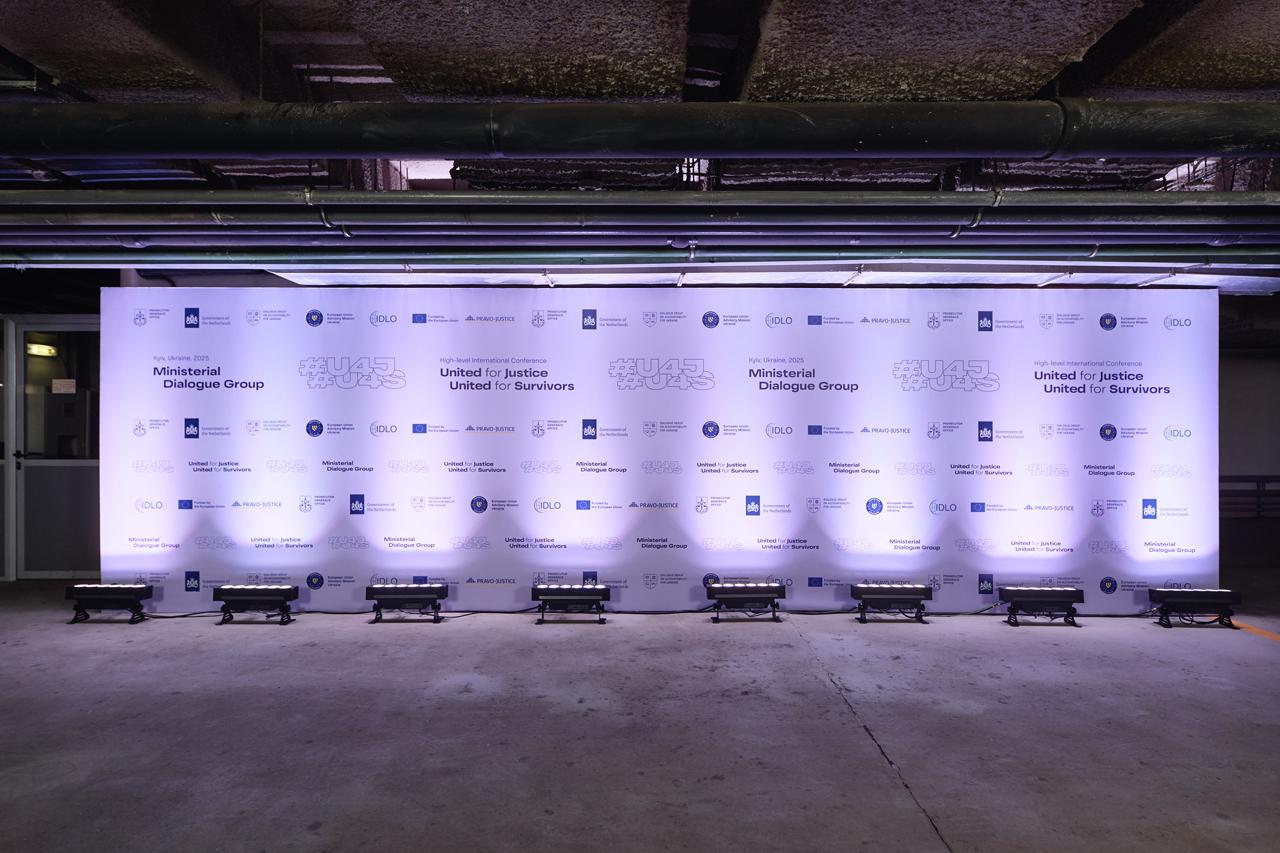
On May 7, an international conference United for Justice. United for Survivors took place in Kyiv. The conference gathered representatives of governments, justice sector institutions, international organisations, civil society, human rights defenders, and experts from many countries. Moreover, the eighth conference also featured a meeting of the Ministerial Dialogue Group on Accountability for International Crimes.
The event was organised by the Office of the Prosecutor General of Ukraine in cooperation with the Government of the Netherlands and with the support of EU Project Pravo-Justice and other international partners. The event aimed to strengthen cooperation in the investigation of international and war crimes committed because of Russian aggression against Ukraine and to develop a comprehensive support system for survivors.
In particular, this year, participants discussed the following topics during six panel discussions:
- aligning Ukrainian legislation with international law;
- digital evidence, OSINT and emerging technologies for documenting crimes;
- victims’ rights in criminal proceedings;
- protecting children in armed conflict;
- international experience of assisting war crime survivors;
- trauma-informed communication with victims and about their experiences.
Andrii Yermak, Head of the Office of the President of Ukraine, gave opening remarks at the conference. In his video address, he emphasised that it is crucial to consolidate the efforts of the entire civilised world to hold war criminals accountable and restore justice.
“Over 150,000 documented war crimes and over 100,000 confirmed victims are just the tip of the iceberg, the pain Ukrainians endure every day. Evil does not occur by itself, and violence is not accidental. It is orchestrated and perpetrated. That is why we must do everything we can to ensure every victim gets justice,” Andrii Yermak stressed.
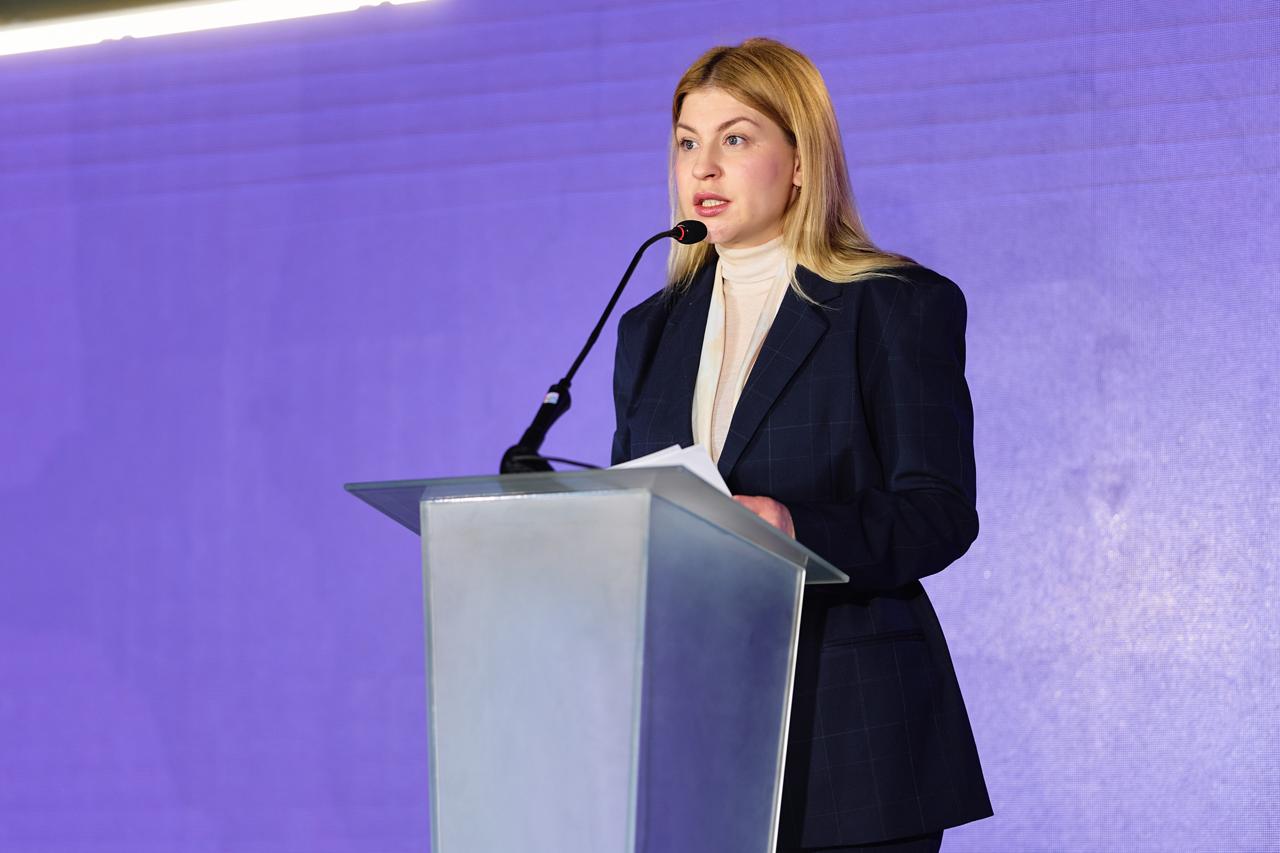
Olha Stefanishyna, Deputy Prime Minister for European and Euro-Atlantic Integration – Minister of Justice of Ukraine, focused on comprehensive policies implemented by the Ministry of Justice to ensure justice is restored.
“We have launched a register of data on deported and transferred children... Furthermore, we have already recovered over UAH 13 billion through lawsuits filed by the Ministry of Justice within the framework of the implementing sanctions policy for the benefit of the state. Moreover, thanks to our international partners, we have set up a research hub that provides expertise on all aspects related to private companies and individuals that seek compensation from Ukrainian and foreign jurisdictions for damages caused by the Russian Federation,” said Olha Stefanishyna.
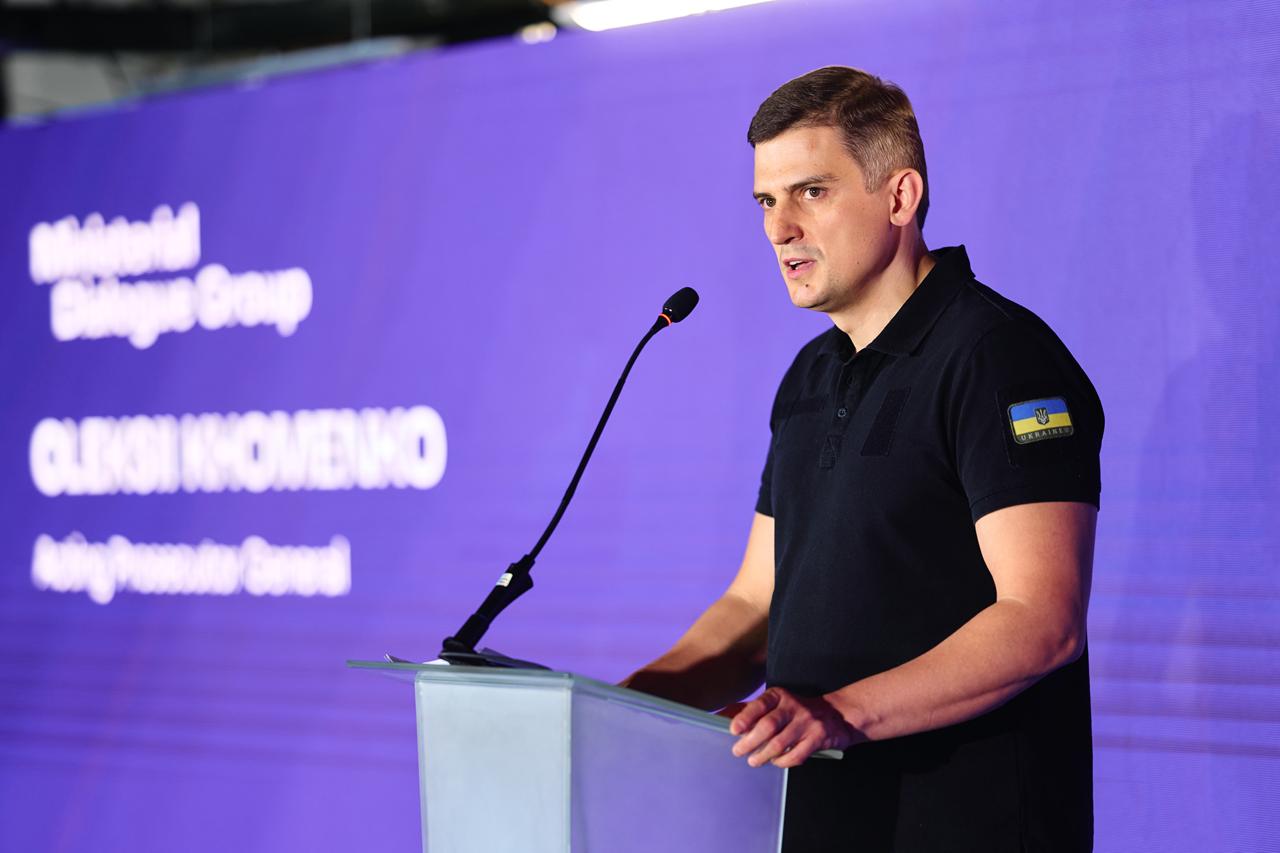
Oleksii Khomenko, Acting Prosecutor General of Ukraine, outlined the key aspects of the system for comprehensive accountability of the aggressor: national investigations, responsibility of the Russian Federation’s top officials for the crime of aggression, cooperation with international justice mechanisms, coordination regarding proceedings in partnering countries, and ensuring compensation for victims. He also emphasised that Ukraine has become a unique example of a state that delivers justice in wartime.
“Investigations, collecting evidence, taking cases to court, and involving victims - this is the work we do every day, even in frontline zones. This has been made possible thanks to the professionalism of Ukrainian law enforcement officers and the ongoing support from international partners,” stated Oleksii Khomenko.
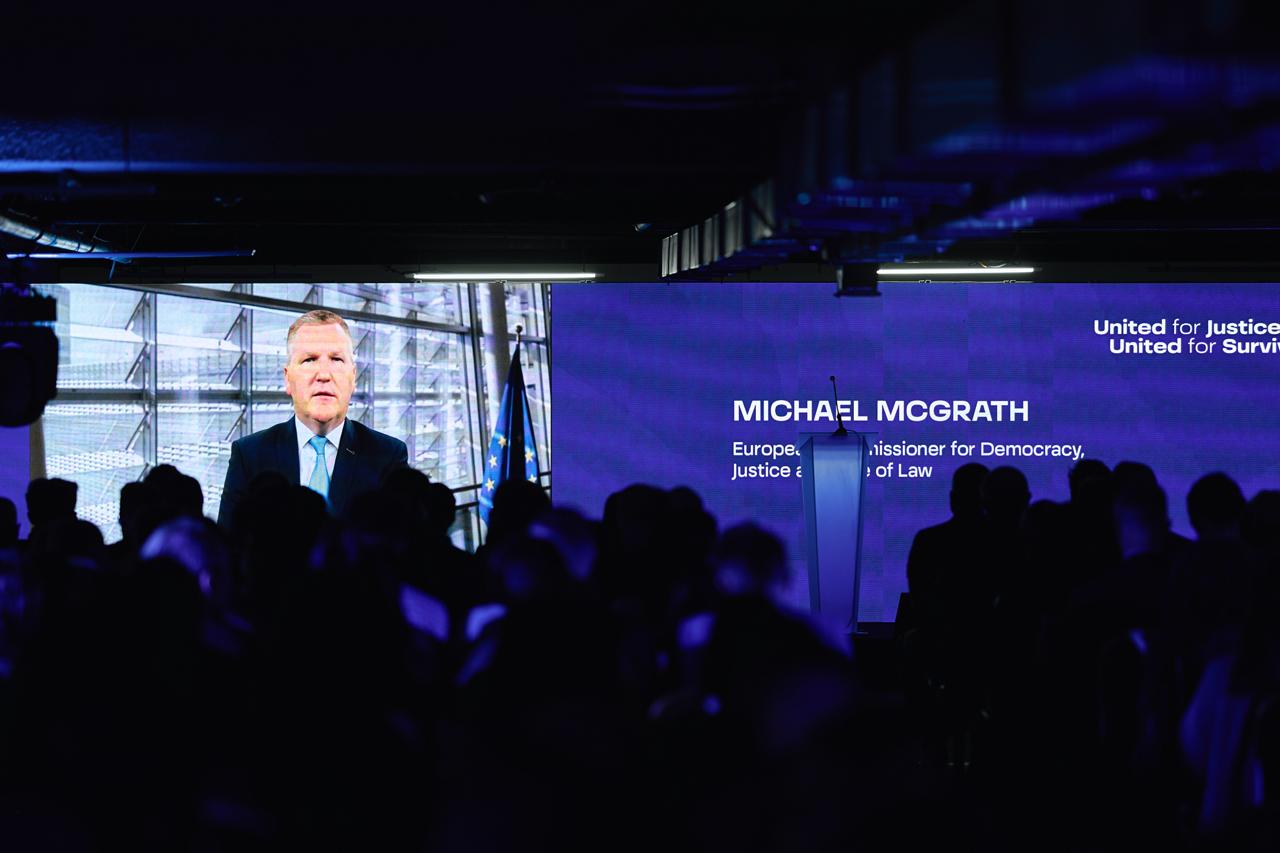
Michael McGrath, European Commissioner for Justice, stated that despite significant shifts in the geopolitical landscape, Ukraine’s resolve to resist Russian aggression remains steadfast, just as the European Union remains unwavering in its commitment to a rules-based international order.
He said that for three years, the EU has helped ensure justice for crimes committed against the people of Ukraine, particularly through Eurojust’s exceptional support for investigating international crimes, and also through European Union Advisory Mission in Ukraine and EU Project Pravo-Justice that have provided support to the Office of the Prosecutor General as members of the Atrocity Crimes Advisory Group (ACA). Ukraine also receives support through the Dialogue Group initiated by the Government of the Netherlands.
Michael McGrath highlighted several areas of cooperation with the Office of the Prosecutor General featuring tangible progress, namely victim and witness protection, harmonisation of legislation, digital justice, and crimes against children.
“We have facilitated cross-border cooperation, helped ensure child-friendly investigation practices and supported long-term victim support strategies. Victims of international crimes committed during Russia’s war against Ukraine deserve justice... Victims must be empowered to influence criminal proceedings and tell their stories of what they had been through, be heard, and be protected against secondary victimisation, intimidation or retaliation,” he stressed.
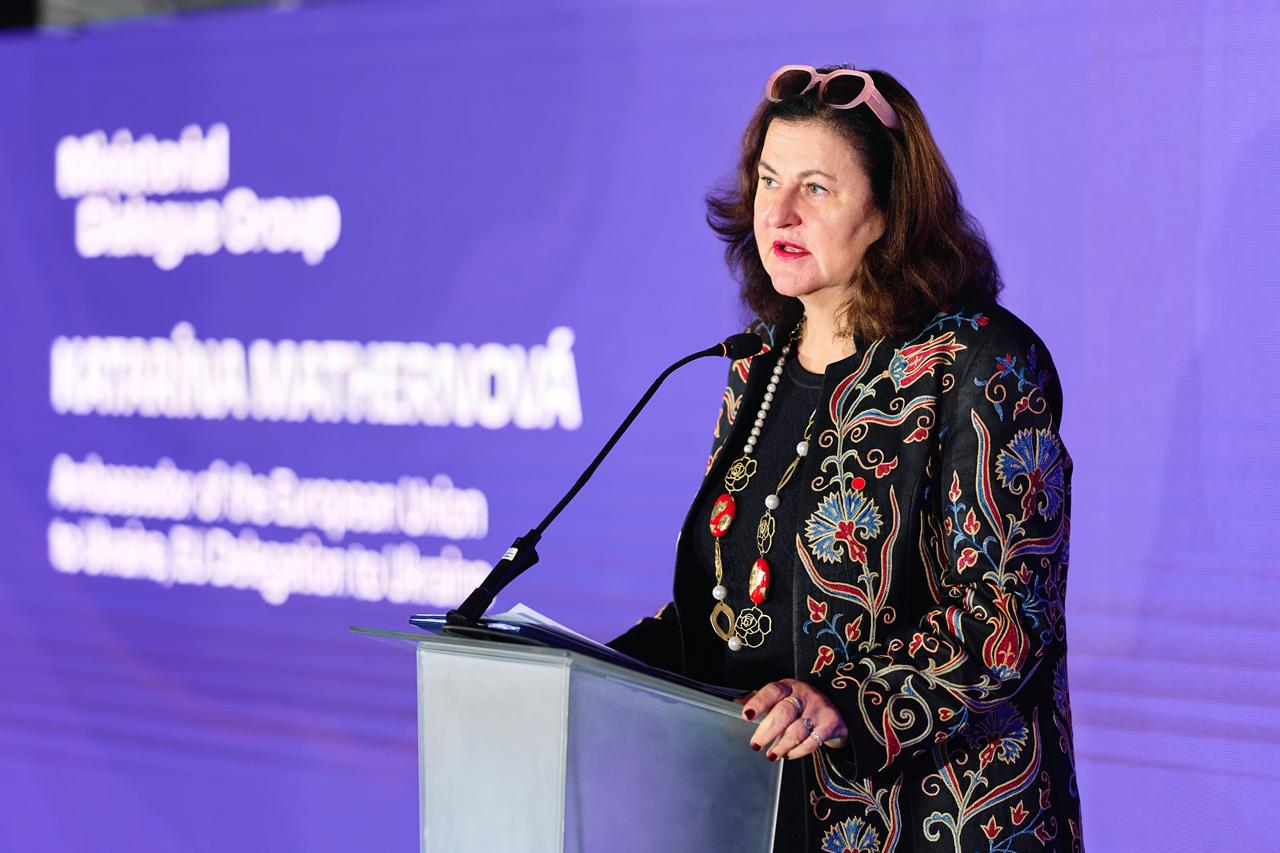
Katarína Mathernová, Ambassador of the European Union to Ukraine, assured the conference attendees that the EU has never wavered and will never waver in its commitment to the principles of international justice.
“Let’s make sure that all the evidence and documents clearly demonstrating the atrocities and international crimes committed are not lost in vain. We must ensure that we never hesitate to use all the evidence we have. We must use them for the benefit of the victims and for the benefit of all of us,” she emphasised.
The conference also featured speeches by David van Weel, Minister of Justice and Security of the Kingdom of the Netherlands; Sarah Sackman, Minister of State at the Department for Justice of the United Kingdom; Michael Schmid, President of Eurojust; Rolf Holmboe, Head of the European Union Advisory Mission in Ukraine (EUAM Ukraine), and other government officials and experts.
United for Justice. United for Survivors conference became the eighth event in the framework of the United for Justice initiative. For over two years, it has been pooling the efforts of states, international organisations, the expert community and civil society to ensure justice in response to crimes committed because of Russian aggression against Ukraine.